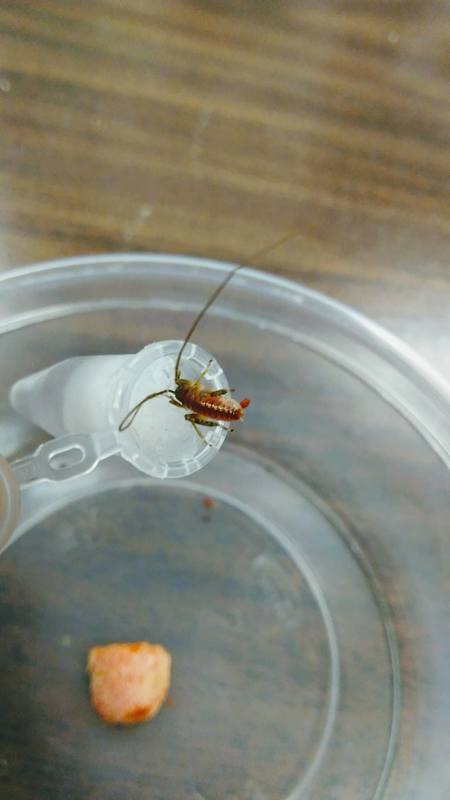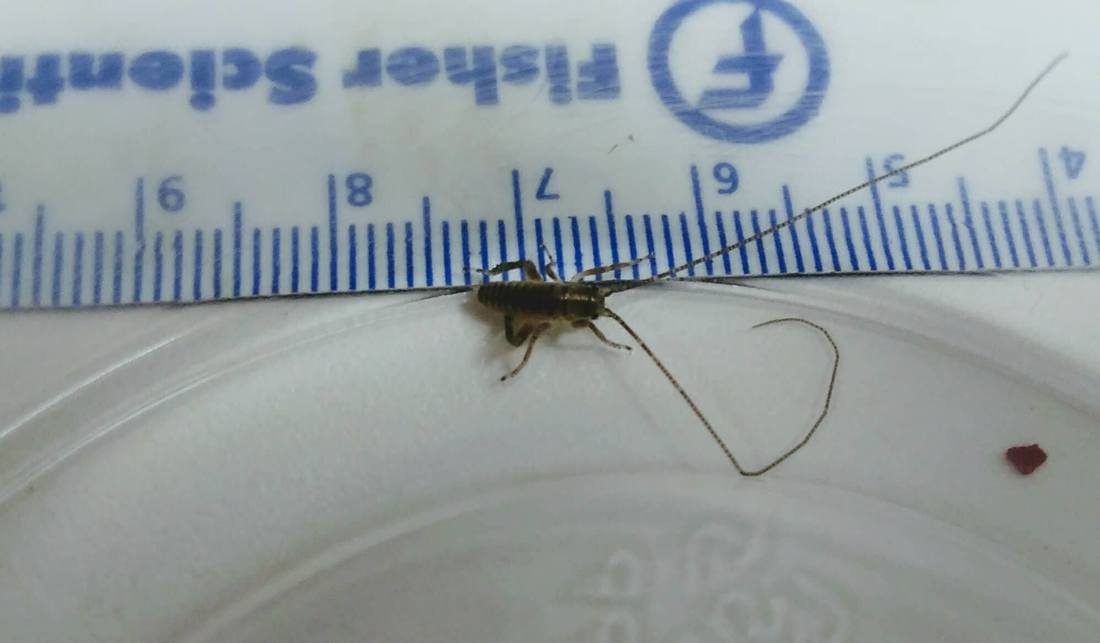News
|
A quick video our MSc student Sarah cut together showing one of our adult wētā eating his old moult! When they've just moulted, wētā are a pale/white-ish colour. Over the next few hours, this male will turn the customary brown colour we're used to seeing.
For the past few years, our lab has been refining techniques for raising and keeping weta in the lab. Previously, we had been supplementing our colony with eggs gathered in New Zealand, but this year...we had our first generation of eggs laid in the lab hatch! And while adult weta can be pretty menacing to look at, when they've just hatched, well...  They're tiny and very cute! Successfully hatching these eggs in captivity was a big milestone for us. Interestingly, while eggs collected from New Zealand usually take ~8 months to hatch, the eggs laid in the lab took 11-12 months! We were worried they might have failed, but just a few weeks ago we started finding hatchlings rather than eggs in our incubator. Another discovery we made last week: when we temporarily shifted the hatchlings' diet from apple to carrot, we found out that these guys are what they eat (check out Mr. Orange on the left here)! Since these hatchlings are the result of controlled matings between our adult weta, we are hoping that they will give us an idea of how heritable certain characteristics are in weta. In particular, we want to know whether the polymorphism shown by adult males (males can be one of three size-based morphs) is heritable. In the long term, this information will be used to help conservation professionals in New Zealand make decisions when translocating weta: does that polymorphism represent genetic diversity that needs to be conserved or not? Little hatchling insects are contributing to big ideas here in the Kelly lab! For more information on this research, you can catch our grad students Sarah Nason and Aurélie Lagueux-Beloin presenting at the Québec Centre for Biodiversity Science symposium in Montréal this December. |

 RSS Feed
RSS Feed
